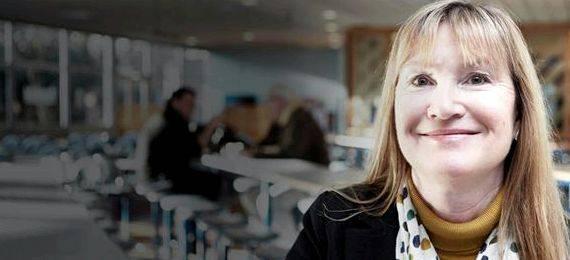Manchester Metropolitan University has a long established programme of providing social work education including both post graduate and undergraduate qualifying courses in social work, doctoral level research, post qualification professional training and post registration training.
The overall purpose of our programmes is to produce professionally capable, analytical and critical reflective social work practitioners, capable of working in any social work service or setting. We seek to develop professionals committed to a value based approach to practice and the promotion of social justice and positive social change.
The Social Work department is home to a wealth of research activities and groups which informs our teaching and helps to inform the way in which Social Work is viewed throughout the country.
At Manchester Met we recognise the value of excellent relations with local and national employers. We are active in working in partnership with local agencies, charities and volunteer agencies in order to develop placement opportunities for our students and innovative in creating post registration and professional development curricula.
The Department of Social Care and Social Work is strongly committed to engagement with the communities where our social care and social work graduates will work. We have an active Service Users and Carers Group, who feed in and evaluate how our programmes are designed and provide essential experience and guidance to our students.
2 years full-time
UK and EU full-time student fees: to be confirmed for 2016. For guidance, fees for 2015 were £7,065. Non-EU full-time international student fees: £13,300.
Features and benefits of the course
Our MA/PG Diploma in Social Work is specifically designed for postgraduates who wish to become registered professional social work practitioners and successful completion of our programme confers eligibility for professional registration with the Health and Care Professions Council (HCPC) .
The MA/PG Diploma programme is approved by the HCPC and meets the Professional Capabilities Framework for Social Workers. It offers an exciting opportunity to undertake a professional training programme whilst studying for a Master’s degree.
The programme has a strong commitment to:
- Promoting a value based approach to social work practice based on rights and social justice
- Integrating social work practice with the essential skills, knowledge, values and attributes essential to become an effective and humane social work practitioner.
- Preparing our students for the demands, challenges and opportunities to promote positive social change as professional social work practitioners.
Accreditations, Awards and Endorsements
Health and Care Professions Council
Placement options
The programme incorporates two social work practice learning placements. The first placement is of 70 days duration and the second and final placement is of 100 days. The university has an excellent relationship with a range of statutory, non-statutory, voluntary and private agencies providing social work services and social work placements. Students are fully supported throughout their placements by a specialist placement team and network of experienced practice based social work educators.

About the course
The MA/PG Diploma in Social Work is delivered over two years and focuses on:
- Essential values, skills and knowledge in social work
- Critical perspectives on social work
- Law, policy and social work practice
- Research and research mindedness
- Professional development and readiness for practice in social work
All our programmes take a student-centred approach to teaching and learning. Each individual student will receive a named personal tutor throughout their studies and have access to excellent dedicated student learning support services on site. Teaching and learning opportunities include lectures, seminars, student-led projects, presentations, workshops and self-directed study. The university library for social work is located on site and is excellently stocked and has the benefit of highly skilled and supportive specialist library staff.
Please note that Students initially register for the MA in Social Work (including your professional social work qualification) which requires the successful completion of the postgraduate social work academic programme and placements.
This route also includes completion of a Research Methods unit and Research Study (typically a dissertation). However, students can also complete their professional qualification with the award of a Post Graduate Diploma in Social Work. This route requires the successful completion of the postgraduate social work academic programme and placements but without undertaking the Research Methods and Research Study units. If you are invited for interview we will go through the programme in more detail on the day.
Bursaries may be available for this programme subject to specific criteria applied by the University and the NHS Bursaries office. For the latest information visit nhsbsa.nhs.uk/students
Units you will study
The programme covers social work with adults and also children and families.
Critical Perspectives on Society, Families and Individuals
An exploration of the different phases of the life course from psychological, sociological and social political perspectives with an emphasis on developing an understanding of the development of relationships within wider structural issues. Students will explore identity development and politics; Influences that have an impact on the life course including socio-political and economic concerns, relationships, abuse and adversity. Consideration will be given to the “phases” of life including infancy, childhood, adolescence, adulthood and old age. Issues of loss and grief will be considered. Theoretical debate contributing to our understanding of the issues including social constructionism, critical psychological approaches and systems approaches to the life course and key thinkers such as Foucault, Butler, Bauman, etc. Contemporary social policy and issues in relation to debates about agency and experience. Mental Health issues pertaining to relevant stages of life, such as young people who self-harm. Social divisions will be considered in terms of processes, patterns and shifts in the conceptualisation of development and identity. Skills development about practice and theory in relation to attachment. Feminist, anti-racist and social models of disability.
Critical Social Work Practice
This unit focuses upon the processes and methods of social work assessment and intervention. Within this it aims to promote the rights of service users, their families and communities and acknowledges a range of theoretical approaches in these processes. The unit will also focus upon social work values and the ethical frameworks that guide professional practice. It will examine the tensions and dilemmas inherent within these processes and the implications for service users, families and the professional social worker. The role of inter professional working will also be explored
Developing Professional Practice
Students will be encouraged to examine the historical development of social welfare and social work and its impact upon contemporary social work provision. An examination of the key debates and tensions arising from this development and the impact upon the professional role as a social worker. Consideration of the key frameworks that shape the professional role and development of social work skills in preparation for direct readiness for practice.
Typical content of this unit will include:
Development of the welfare state; impact of industrialisation; emergence of forms of welfare provision; COS; Settlement movement; identification of social ills and social problems; Poor Law Act; impact of war; Beveridge reform; Seebohm Barclay reports; welfare ideologies and their relationship to social work provision; examination of poverty and the impact on individuals; families communities; reform of social work through the defined phases; understanding the social work role and the key areas of social justice human rights; role of legislation and policy; empowerment; advocacy; risk and protection; care and control; safeguarding and personalisation; understanding social work skills and breadth of current service provision; examination of the frameworks that shape the professional role; organisational contexts; HCPC codes of ethics conduct; fitness to practice; Social Work Reform Board; The College of Social Work; curriculum guides; introduction to the role and relationship between theory, research and practice. Development of practice related skills in preparation for readiness for practice, such as effective use of supervision; reflective practice; communication skills; social work processes and models of social work interventions. Service user perspectives gained form stakeholder consultation.
Law, Human Rights and Social Work
This unit provides students with opportunities to engage with critical debates and perspectives concerning the role and function of law in society and particularly in relation to social work practice. The political context for the development of law and policy and the range of legal rules and provisions relevant to social work practice will be explored, with a focus on the protection and advancement of human rights and the experiences of service users. Students will learn about the range of powers and duties in primary and secondary legislation; statutory guidance and case law relevant to social work practice in England, including international human rights conventions and domestic legislation that has been developed to counter discrimination. This will be considered across a range of service user groups and fields of practice. Critical debates, key tensions and dilemmas relating to how law may be used to protect or advance human rights and entitlements will be a theme throughout the unit. The teaching and learning strategy will provide students with opportunities to engage in the application of law, values and human rights to practice-based scenarios, along with the development of legal research skills to counter knowledge-decay.
Practice Placement 1
Thorughout the programme, students will be expected to undertake 200 days practice placement during the course.
This will consist of:
- 30 skills development days
- 70 days on first placement (Practice Learning 1)
All students will be provided with opportunities to demonstrate that they have met the 9 domains of the Professional Capabilities Framework (PCF) as laid out by the College of Social Work (TCSW). The PCF describes the capabilities required of social workers at all stages of their career. These are:
1. PROFESSIONALISM – Identify and behave as a professional social worker, committed to professional development.
2. VALUES AND ETHICS – Apply social work ethical principles and values to guide professional practice.
3. DIVERSITY – Recognise diversity and apply anti-discriminatory and anti-oppressive principles in practice.
4. RIGHTS, JUSTICE AND ECONOMIC WELLBEING – Advance human rights and promote social justice and economic wellbeing.
5. KNOWLEDGE – Apply knowledge of social sciences, law and social work practice theory.
6. CRITICAL REFLECTION AND ANALYSIS – Apply critical reflection and analysis to inform and provide a rationale for professional decision-making.
7. INTERVENTION AND SKILLS – Use judgement and authority to intervene with individuals, families and communities to promote independence, provide support and prevent harm, neglect and abuse.
8. CONTEXTS AND ORGANISATIONS – Engage with, inform, and adapt to changing contexts that shape practice. Operate effectively within own organisational frameworks and contribute to the development of services and organisations. Operate effectively within multi-agency and inter-professional settings.
9. PROFESSIONAL LEADERSHIP – Take responsibility for the professional learning and development of others through supervision, mentoring, assessing, research, teaching, leadership and management.
Social Work Research and Practice
This unit supports students to plan, manage and deliver a social research study or project in the form of a dissertation or approved product. The curriculum will build upon the core areas from the Social Work Research unit. It is delivered through individual supervision, supporting students in the following areas:
1. Appropriate identification of a research question or area
2. Discussion of research proposal and validity of research area
3. Analysis of methods and methodology
4. Guidance on the research process and subject focus
5. Production of a final research report (dissertation) and preparation for the poster presentation.
Practice Learning 2
Students will be expected to undertake 200 days practice placement during the course. This will consist of:
- 30 skills development days
- 70 days on first placement (Practice Learning 1)
- 100 days on second placement (Practice Learning 2)
All students will be provided with opportunities to demonstrate that they have met the 9 domains of the Professional Capabilities Framework (PCF) as laid out by the College of Social Work (TCSW). The PCF describes the capabilities required of social workers at all stages of their career. These are:
1. PROFESSIONALISM – Identify and behave as a professional social worker, committed to professional development
2. VALUES AND ETHICS – Apply social work ethical principles and values to guide professional practice
3. DIVERSITY – Recognise diversity and apply anti-discriminatory and anti-oppressive principles in practice
4. RIGHTS, JUSTICE AND ECONOMIC WELLBEING – Advance human rights and promote social justice and economic wellbeing
5. KNOWLEDGE – Apply knowledge of social sciences, law and social work practice theory
6. CRITICAL REFLECTION AND ANALYSIS – Apply critical reflection and analysis to inform and provide a rationale for professional decision-making
7. INTERVENTION AND SKILLS – Use judgement and authority to intervene with individuals, families and communities to promote independence, provide support and prevent harm, neglect and abuse
8. CONTEXTS AND ORGANISATIONS – Engage with, inform, and adapt to changing contexts that shape practice. Operate effectively within own organisational frameworks and contribute to the development of services and organisations. Operate effectively within multi-agency and inter-professional settings
9. PROFESSIONAL LEADERSHIP – Take responsibility for the professional learning and development of others through supervision, mentoring, assessing, research, teaching, leadership and management
Social Work Research and Practice
This unit supports students to plan, manage and deliver a social research study or project in the form of a dissertation or approved product.
The curriculum will build upon the core areas from the Social Work Research unit. It is delivered through individual supervision to support students in the following areas:
1. Appropriate identification of a research question or area
2. Discussion of research proposal and validity of research area
3. Analysis of methods and methodology
4. Guidance on the research process and subject focus
5. Production of a final research report (dissertation) and preparation for the poster presentation.
Social Work, Safeguarding and Inter Professional Practice
The unit provides students with opportunities to consider interventions where there is risk of harm or abuse or complex need. Students will engage with debates and perspectives concerning risk and reflect on the relevance of these to social work practice. Students will consider the exercise of reasoned professional judgement, professional collaboration and service user and carer involvement in decisions. The unit gives students an overview of developments in interprofessional and partnership working. Students will begin to identify opportunities for social workers to provide professional leadership in complex cases.
This unit builds on students’ learning in earlier units concerning forms of harm and abuse; their impact on people; sociological and psychological perspectives; cycles of vulnerability; feminist perspectives; socio-ecological conceptual frameworks. The unit also draws on students’ learning about human growth and the life course, communication and relationship building, social justice, human rights and social work law, ethical practice, professional judgement and decision-making, relationship to professional identity and professional development.
Specialist Practice in Social Work
The unit is designed to enable students to explore key theories, concepts and ideologies underpinning the delivery of welfare to a range of service user groups in the U.K. It enables students to begin to deepen their knowledge and understanding in specialist areas of practice relevant to social work practice. Students choose two pathways within this unit and can therefore combine learning in two distinct areas.
Students will develop an understanding of contemporary issues affecting defined service user groups and develop skills in assessment, planning, intervening and working with one of the following specific areas of practice:
- Social Work with children and families
- Social Work with Adults
- Social Work and Mental Health






 Diff between thesis and dissertation online
Diff between thesis and dissertation online Open university projects portfolios dissertations office 365
Open university projects portfolios dissertations office 365 Preparing for dissertation proposal defense
Preparing for dissertation proposal defense Writing a history dissertation introduction components
Writing a history dissertation introduction components Phd dissertation sample topics for paragraph
Phd dissertation sample topics for paragraph






